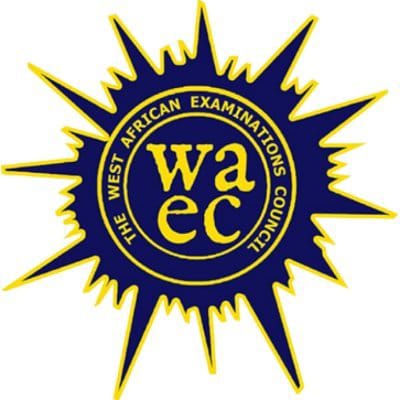Daniel Otera
Despite earlier condemnation by the Federal Government over the conduct of examinations in unsuitable conditions, the West African Senior School Certificate Examination (WASSCE) has once again sparked outrage this time in Taraba and Benue states after candidates were made to sit for papers late into the night, in some cases using torchlights to write.
In Taraba State, students scheduled to write the English Language paper at 8:00am were still in examination halls deep into the night.
Parents who went in search of their wards were shocked to learn that the students were still writing the paper. Many described the development as “unheard of” and demanded accountability from the examination body.
“WAEC should have postponed the paper rather than subject children to stress and insecurity,” one parent told The Journal. “Some of them have another exam the next day. This is not acceptable.”
The situation was mirrored in parts of Benue State, particularly in Ogbadibo Local Government Area, where students who had completed the essay section of their English Language paper were reportedly kept waiting for several hours for the objective section to arrive. The delay dragged into the evening, with some centres concluding the paper between 8:00 and 11:00pm.
“We waited endlessly. When the exam officer finally arrived, he didn’t explain anything. He just dropped the papers and left,” a student told The Journal, requesting anonymity. “We used our phone lights and lanterns to write. It was exhausting.”
Parents, alarmed by the prolonged absence of their children, stormed some of the affected schools, raising safety concerns and calling for urgent reform in exam coordination and supervision.
These incidents occurred despite prior warnings from the Federal Ministry of Education, which had recently condemned a similar episode in Delta State. In that case, candidates were seen in a viral video writing the WASSCE at night using torchlights, under the supervision of local education authorities.
Reacting to the Delta incident, the Minister of Education, Dr Tunji Alausa, issued a statement describing the situation as “completely unacceptable.” The statement, released in Abuja through the Ministry’s Director of Press and Public Relations, Folasade Boriowo, criticised the poor conditions and promised corrective action.

“The Ministry’s attention has been drawn to the conduct of an examination in an unsuitable environment, as seen in footage circulating on social media,” the statement noted. “This reveals an inappropriate setting for such a critical academic exercise.”
At the time, the Minister confirmed that an investigation was already underway in collaboration with the Delta State Government and WAEC, promising that the outcome would be made public and that safeguards would be introduced to prevent recurrence.
However, the fresh incidents in Taraba and Benue now raise serious questions about the efficacy of those warnings and whether WAEC or state officials made any changes in response.
According to the West African Examinations Council (WAEC), over 1.9 million candidates from across Nigeria registered for the 2025 West African Senior School Certificate Examination (WASSCE), with more than 450,000 estimated to be from the northern states alone.
This significant figure highlights the immense logistical demands of administering the exam across Nigeria’s vast and diverse regions, especially in remote or underserved communities.
While WAEC has not released a regional breakdown of its 2025 data, population distribution and school registration trends suggest that northern Nigeria accounts for nearly a quarter of the total enrolment.
Yet, stakeholders insist that no matter the scale of operations, the welfare of candidates must not be compromised.
The recent incidents in Taraba and Benue coming despite earlier warnings from the Federal Ministry of Education following a similar controversy in Delta have now triggered fresh concerns about the preparedness and accountability of WAEC and its local partners.
Meanwhile, the West African Examinations Council (WAEC) has offered an explanation, citing measures aimed at curbing examination malpractice as the primary cause of the delay.
In a statement issued on Thursday, WAEC’s Acting Head of Public Affairs, Moyosola Adesina, confirmed that the paper originally scheduled for the morning of May 28 was delayed in many centres nationwide due to heightened efforts to protect the integrity of the examination process.
“While maintaining the integrity and security of our examination, we faced considerable challenges primarily due to our major aim of preventing leakage of any paper,” Adesina said.
“While we successfully achieved our objective, it inadvertently impacted the timeliness and seamless conduct of the examination.”
The delay, which stretched until as late as 10pm in some centres, led to chaotic scenes where students were seen using torchlights and lanterns to complete the paper. Parents expressed deep concern about the psychological and physical toll on the candidates, especially those expected to write another subject the following day.
WAEC acknowledged these concerns and offered an apology to candidates, parents, and schools affected by what it described as a “challenging period.” The Council also attributed the disruptions to logistical hurdles, security threats, and sociocultural factors that reportedly complicated operations in certain regions.
To forestall future occurrences, WAEC said it is collaborating with security agencies to improve operational efficiency and ensure a more predictable exam environment going forward.
“Despite our best efforts, we encountered logistical hurdles, security concerns and sociocultural factors that negatively influenced our operations. In order to forestall future occurrences of this nature, the council is currently collaborating with security agencies,” the statement noted.
The 2025 WASSCE, which began on April 24, is scheduled to end by June 20, with over 1.9 million candidates participating nationwide.
According to The Journal’s analysis of WAEC data, more than 450,000 candidates are from northern Nigeria, underlining the scale of the logistical and infrastructural burden on examination authorities.
Despite the apology, education stakeholders maintain that no logistical strategy should override student welfare, calling for urgent reforms to avoid a repeat of the incident.

